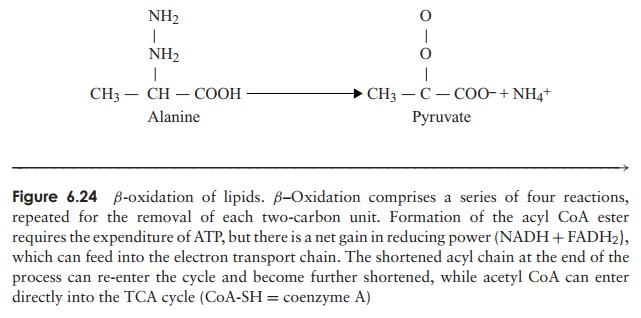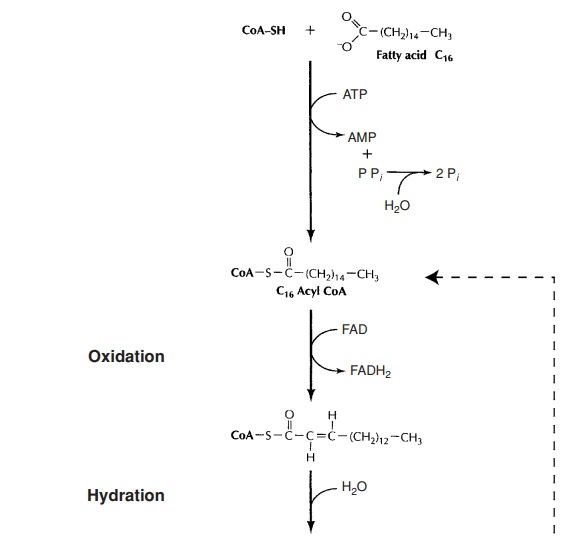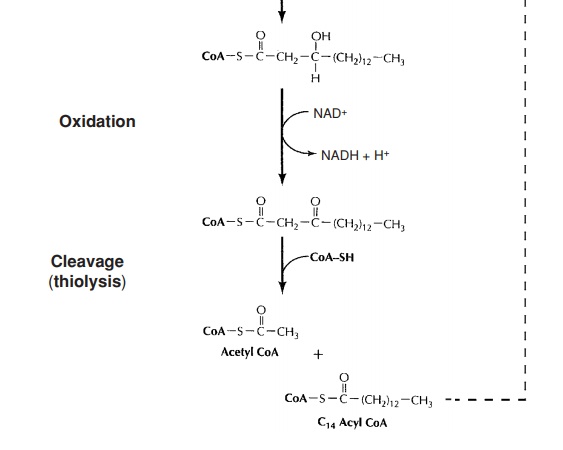Chapter: Essential Microbiology: Microbial Metabolism
Metabolism of lipids and proteins
Metabolism of
lipids and proteins
We have concentrated so far on the metabolism of
carbohydrates, but both lipids and proteins may also act as energy sources.
Both are converted by a series of reactions to an intermediate compound that
can then enter the pathways of metabolism.
Lipids often form an important energy source for
microorganisms; they are plentiful in nature, as they form the major component
of cell membranes, and may also exist as cellular storage structures. Lipids
are hydrolysed by a class of enzymes called lipases
to their constituent parts; the fatty acids so produced enter the cyclic β-oxidation pathway. In this, fatty acids are joined
to coenzyme A to form an acyl-CoA,
and shortened by two carbons in a series of reactions (Figure 6.24). Molecules
of NADH and FADH2 derived from β-oxidation can enter the electron transport chain to
produce ATP. Acetyl-CoA, you will recall from earlier, serves as the entry
point into the TCA cycle. When you consider that a single turn of the TCA cycle
gives rise to the production of 14 molecules of ATP, you can appreciate what a
rich source of energy a 16- or 18-carbon fatty acid represents. The glycerol
component of a lipid requires only slight modification in order to enter the
glycolytic pathway as dihydroxyacetone phosphate .

Proteins are a less useful source of energy than
lipids or carbohydrates, but may be utilised when these are in short supply.
Like lipids, they are initially hydrolysed to their constituent ‘building
blocks’, in this case, amino acids. These then undergo the loss of an amino
group (deamination), resulting in a compound that is able to enter, either
directly or indirectly, the TCA cycle.


Related Topics